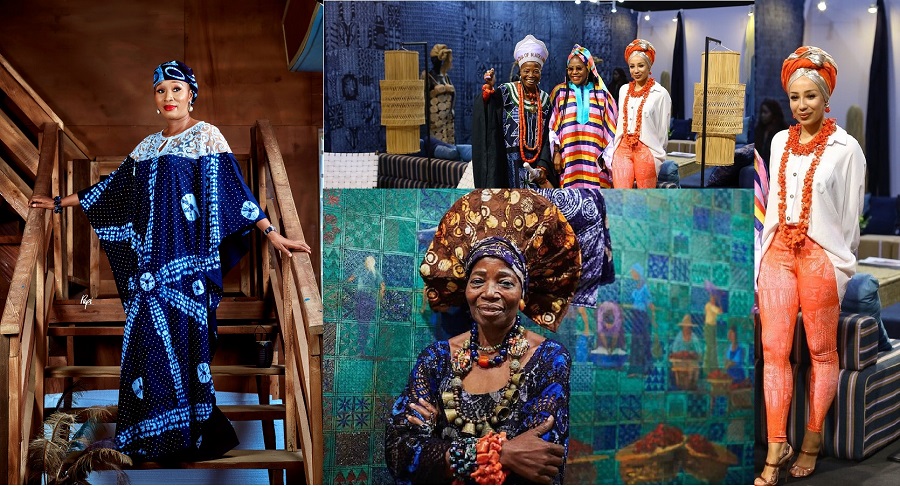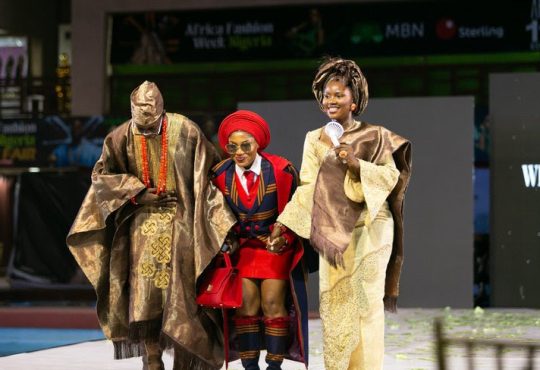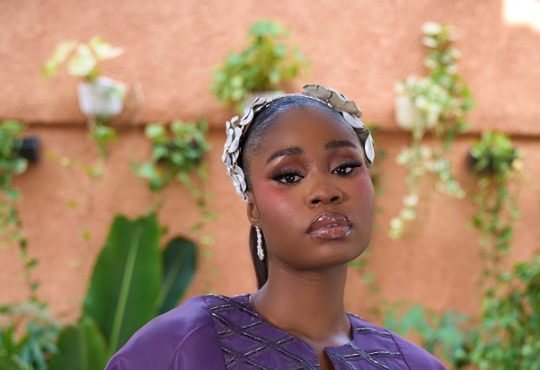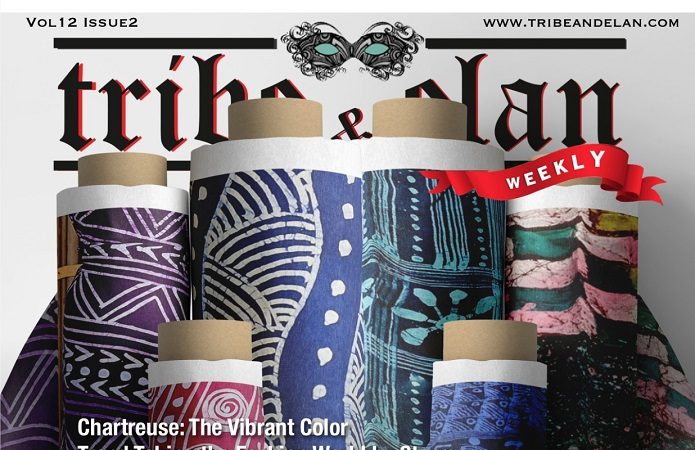
In the rich tapestry of Nigerian fashion, Adire stands as a vibrant symbol of the country’s cultural heritage. At the heart of this textile tradition are the Adire gatekeepers, individuals who tirelessly work to preserve and advance the art form thereby preserving a Time-Honored Craft . Adire, rooted in Yoruba tradition, is a tie-dye technique that involves intricate patterns and vibrant colors. The gatekeepers are the custodians of this time-honored craft, ensuring its preservation and passing down their knowledge to future generations. These skilled artisans possess an intimate understanding of the traditional techniques, symbols, and meanings behind each Adire design.
With the likes of Chief Nike Davies-Okundaye & Olori Ronke Ademiluyi-Ogunwusi , Jide Batik etc . This article takes a dive into the role and significance of some of these gatekeepers in Nigeria’s fashion landscape.

Some of the beneficial aspects of these Gatekeepers are as follows –
Bridging Tradition and Innovation:
While preserving tradition is essential, the Adire gatekeepers also embrace innovation to keep the craft relevant in contemporary fashion. They infuse new life into Adire by exploring creative interpretations, combining traditional techniques with modern design aesthetics. This fusion allows Adire to transcend cultural boundaries and appeal to a wider audience, both within Nigeria and globally.
Empowering Artisans and Communities :
The gatekeepers play a vital role in empowering local artisans and supporting small communities. They provide training, resources, and fair compensation for their craft, promoting sustainable practices and economic growth. By fostering collaboration and preserving a sense of community, the gatekeepers ensure that the art of Adire continues to thrive and uplift those involved in its creation.
Global Recognition and Influence & The Gateway to Cultural Appreciation :
Through the dedication and innovation of the gatekeepers, Adire has gained recognition on the international fashion stage. Designers worldwide now incorporate Adire fabrics and patterns into their collections, giving the art form the visibility it deserves. The gatekeepers serve as ambassadors, spreading awareness of Nigeria’s rich textile heritage and showcasing the country’s creative talents.
The Adire gatekeepers bridge the gap between tradition, innovation, and cultural appreciation. They preserve a centuries-old craft while adapting it to contemporary fashion sensibilities. By honoring the legacy of Adire, these gatekeepers contribute to the preservation and promotion of Nigeria’s cultural identity on a global scale.
Meet the Gatekeepers
Preserving Heritage, Inspiring Creativity: Chief Nike Okundaye’s Adire Legacy
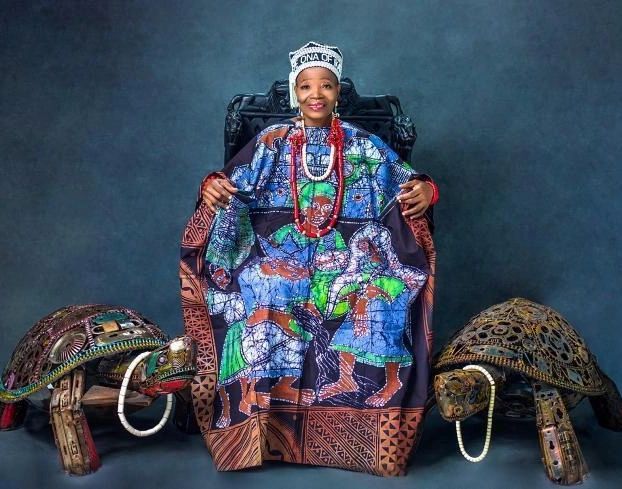
Chief Nike Okundaye is a legendary figure in the world of Adire, a traditional Nigerian textile art form. As a renowned artist and founder of the Nike Art Gallery, she has dedicated her life to preserving and promoting the beauty of Adire. With her mastery of the craft, she has not only created stunning Adire pieces but also empowered numerous artisans through training and employment opportunities. Chief Nike Okundaye’s contributions to the Adire community have elevated the art form’s status and ensured its cultural legacy. Her artistic prowess and passion for Adire continue to inspire and captivate both local and international audiences.
Olori Ronke Ademiluyi Ogunwusi: A Trailblazer in Adire Oodua
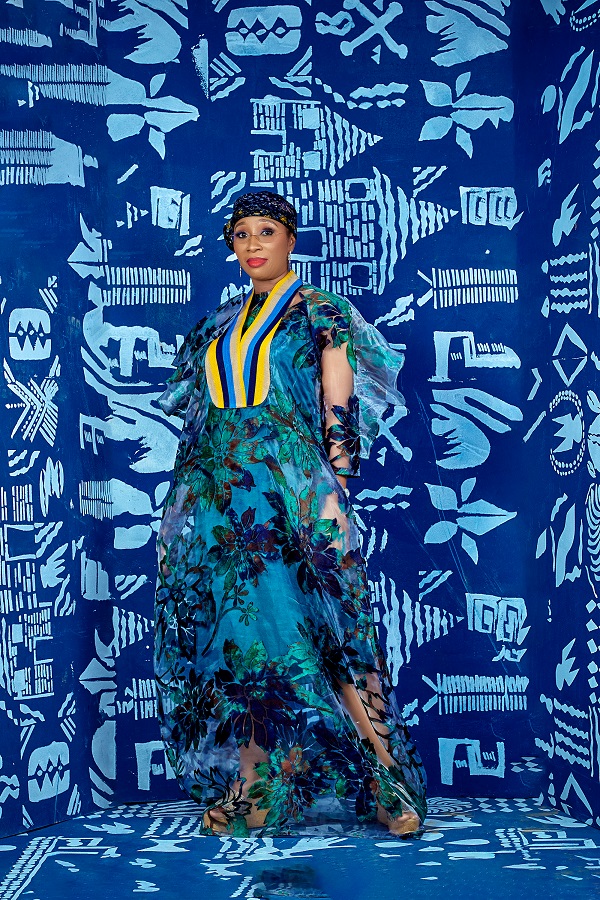
Olori Ronke Ademiluyi-Ogunwusi is a visionary figure who has revitalized the ancient Nigerian textile art of Adire through her brand, Adire Oodua. As a descendant of Nigerian royalty and a lawyer, she combines her love for heritage and fashion, elevating Adire to new heights. Olori Ronke Ademiluyi-Ogunwusi empowers local artisans, particularly women, providing sustainable livelihoods and fair compensation. She actively promotes Adire as a cultural heritage, organizing workshops and exhibitions to raise awareness about its significance. Her dedication extends beyond fashion, championing the preservation of Nigerian culture and ensuring Adire‘s rightful place among the global artistic community.
Mastering the Art of Batik: The Creative Journey of Jide Lawal.
Jide Lawalaka Jide Batik, a highly skilled Nigerian artist, is renowned for his expertise in creating intricate batik artworks. With a deep understanding of the traditional technique, he employs wax and dyes to produce stunning designs that reflect Nigerian culture, wildlife, and daily life. Jide Batik‘s works exemplify the diversity and richness of his homeland. His talent has garnered acclaim both locally and globally, solidifying his status as a prominent figure in Nigeria’s art community. Through his distinctive creations, Jide Batik not only preserves the beauty of Nigerian batik art but also promotes its cultural heritage, making a significant contribution to his country’s artistic legacy.
Passing the Torch of Creativity: Allyson Aina Davies and the Influence of Mum -Chief Nike Okundaye
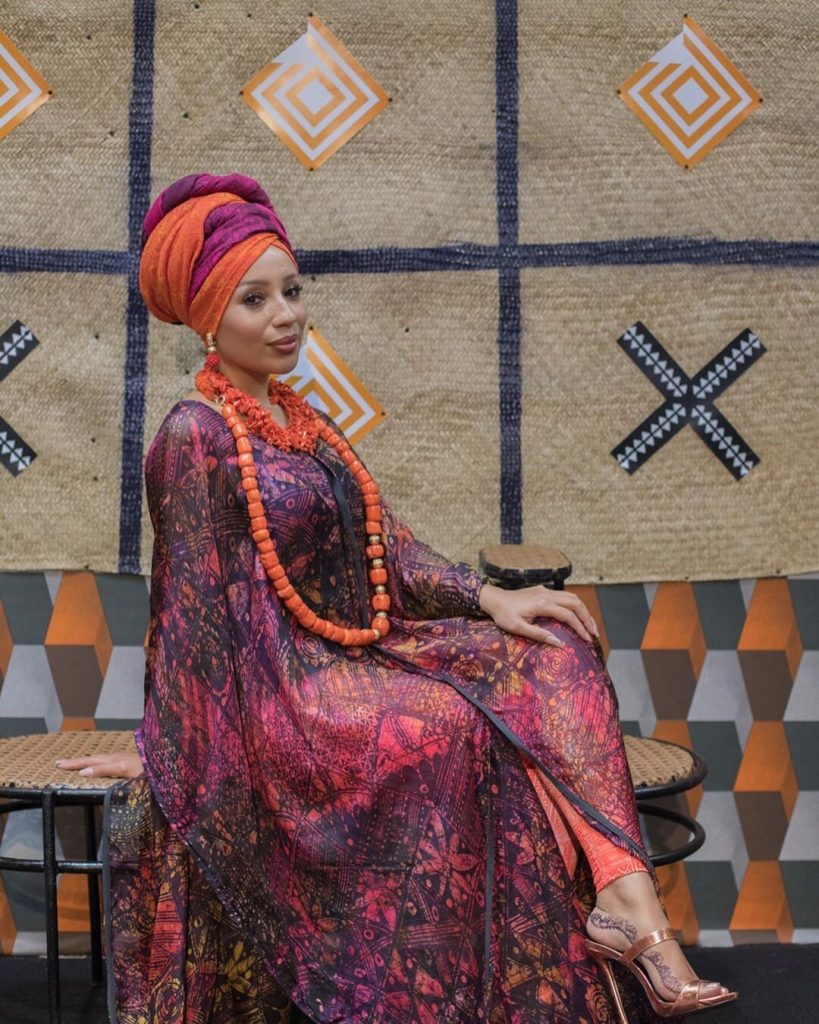
Allyson Aina Davies is a highly regarded artist in the world of Nigerian textile art, specializing in the revered Adire craft. With her exceptional talent and dedication, Allyson has become a significant contributor to the preservation and promotion of Adire. Her intricate designs and skilled craftsmanship reflect the richness of Nigerian culture. Additionally, Allyson has collaborated with renowned artist Nike Okundaye, combining their expertise to advance the art form. Together, they have played a crucial role in elevating Adire’s status both nationally and internationally. Through their collective efforts, Allyson Aina Davies and Nike Okundaye have made lasting contributions to the legacy and appreciation of Adire.
In Conclusion :
The Adire gatekeepers are the unsung heroes of Nigeria’s fashion industry, diligently working to preserve a treasured textile tradition. Their commitment to innovation and cultural preservation ensures that Adire remains relevant and continues to captivate audiences worldwide. Through their efforts, the art form thrives, and Nigeria’s rich heritage shines brightly in the world of fashion.


